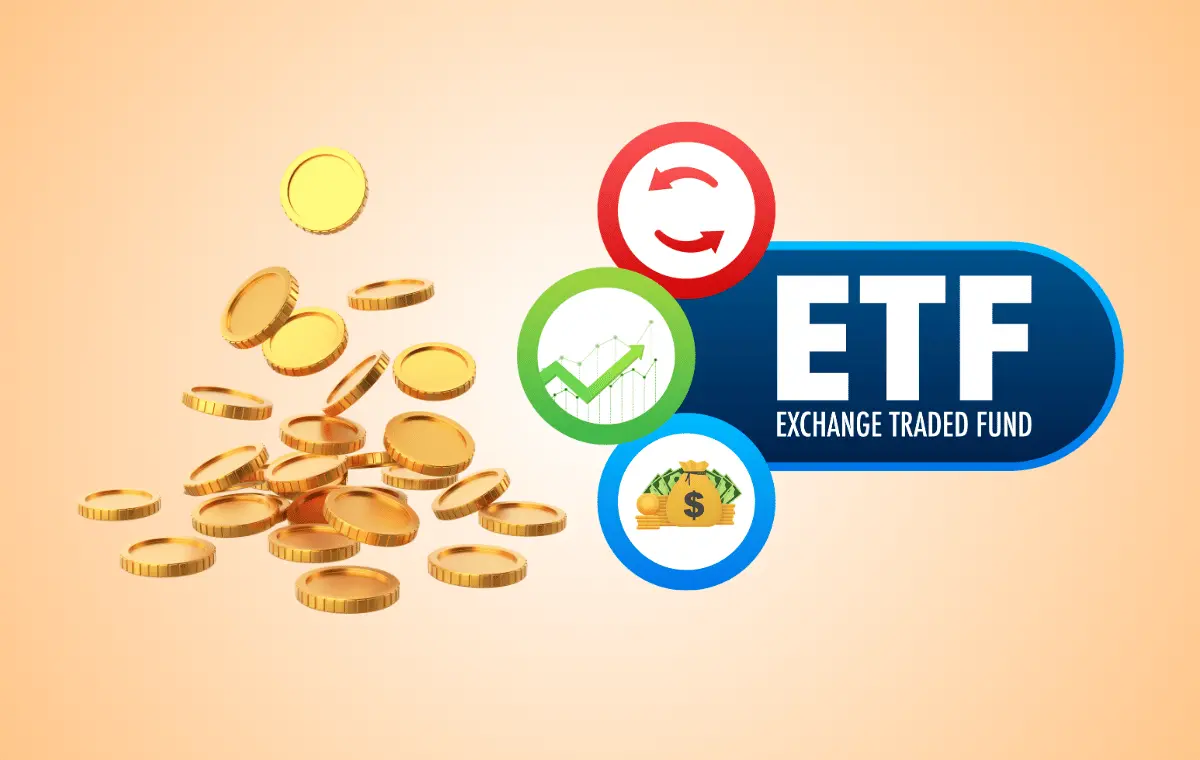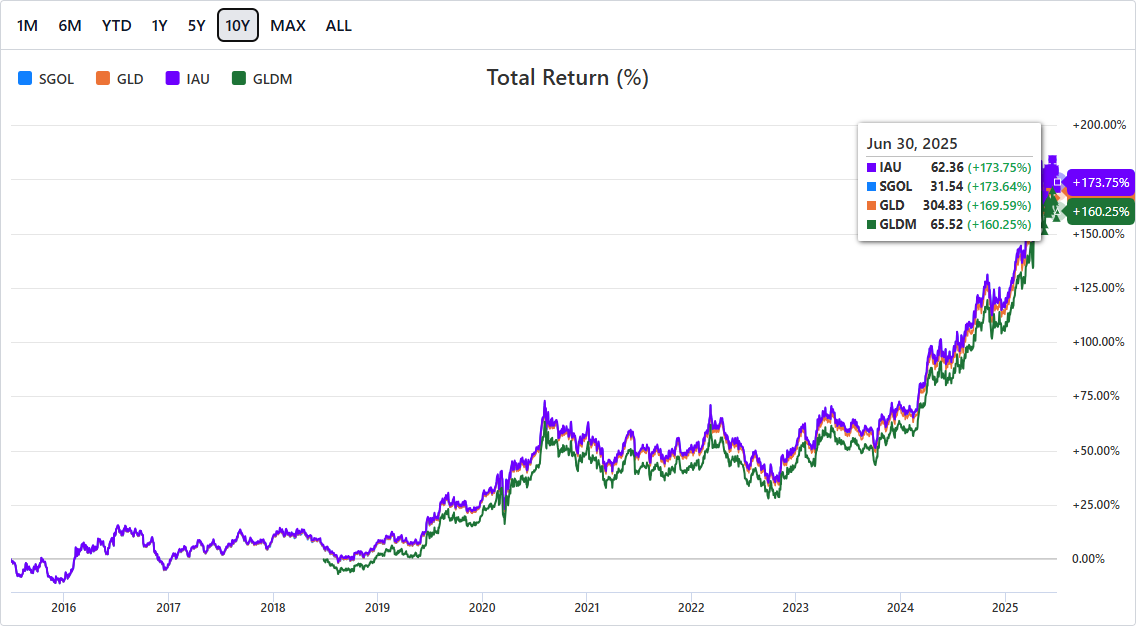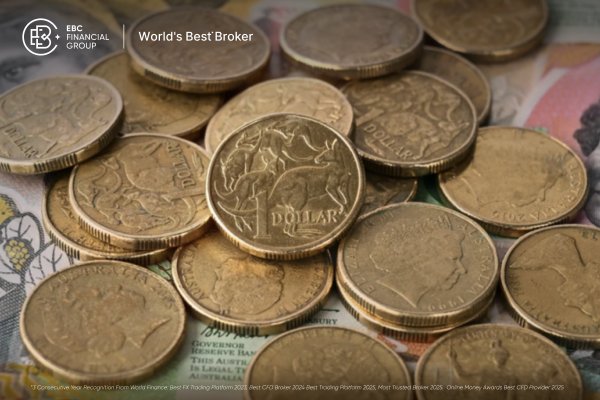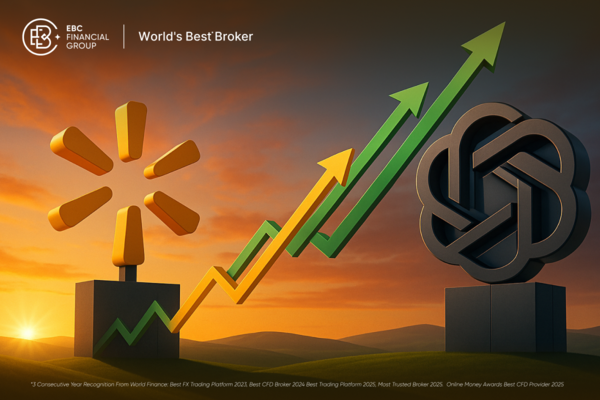Gold ETF investing has become a cornerstone strategy for traders and investors seeking exposure to precious metals without the complexities of physical ownership.
As market volatility continues and investors look for ways to diversify their portfolios, understanding the core benefits of gold ETF investing is essential for making informed investment decisions.
Benefits of Gold ETF Investing

1. Superior Liquidity and Trading Flexibility
Gold ETFs offer exceptional liquidity compared to physical gold, trading like stocks on major exchanges during market hours. This means traders can buy or sell positions instantly at transparent market prices, unlike physical gold which requires finding buyers and may involve lengthy settlement processes.
Popular gold ETFs see millions of shares traded daily, ensuring tight bid-ask spreads and efficient execution for both small and large orders.
2. Cost-Effective Investment Structure
One of the most compelling benefits of gold ETF investing is the significantly lower cost structure compared to physical gold ownership. Gold ETFs typically charge management fees ranging from 0.25% to 0.40% annually, which is far less than the combined costs of purchasing, storing, insuring, and eventually selling physical gold.
There are no making charges, storage fees, or security concerns that come with physical gold ownership, making ETFs a more economical choice for long-term investors.
3. No Storage or Security Hassles
Gold ETF investing eliminates the practical challenges of physical gold ownership entirely. Investors don't need to worry about secure storage facilities, insurance premiums, or theft risks. The gold backing the ETF is stored in secure vaults by professional custodians, and your ownership is represented digitally in your brokerage account.
This convenience factor makes gold ETFs particularly attractive for modern investors who want gold exposure without the logistical complexities.
4. Portfolio Diversification Benefits

Gold ETFs provide excellent diversification benefits as gold often moves independently of stocks and bonds. During market downturns, gold frequently acts as a hedge, helping to cushion portfolio losses when equities decline.
The correlation between gold and traditional assets remains low, making gold ETF investing an effective tool for reducing overall portfolio volatility whilst maintaining growth potential.
5. Transparent and Real-Time Pricing
Gold ETFs offer complete pricing transparency, with values reflecting real-time gold market prices throughout trading hours. Unlike physical gold purchases where dealers may charge varying premiums, ETF prices are standardised and publicly available.
This transparency ensures investors always know the fair value of their holdings and can make informed trading decisions based on accurate market information.
6. Accessibility and Low Minimum Investment
Gold ETF investing is highly accessible, with most ETFs allowing investments as small as the price of a single share—often equivalent to just a fraction of an ounce of gold.
This low barrier to entry makes gold investing available to retail traders who might not have the capital to purchase meaningful amounts of physical gold. Additionally, many brokers offer commission-free ETF trading, further reducing the cost of entry.
7. Tax Efficiency and Regulatory Protection
Gold ETFs often provide better tax treatment compared to physical gold in many jurisdictions. Long-term holdings may qualify for favourable capital gains rates, and there's no VAT or wealth tax typically associated with physical gold purchases.
Furthermore, gold ETFs are regulated investment products, providing investor protections that don't exist with physical gold transactions. The regulatory oversight ensures proper custody of underlying assets and transparent reporting.
Popular Gold ETF Options

Several established gold ETFs dominate the market, each offering slightly different features:
-
SPDR Gold Trust (GLD): The largest gold ETF with high liquidity but slightly higher fees
-
iShares Gold Trust (IAU): Lower expense ratio making it cost-effective for long-term holdings
-
SPDR Gold MiniShares (GLDM): Designed for smaller investors with competitive fees
Aberdeen Physical Gold Shares (SGOL): Offers London storage and competitive pricing
Strategic Considerations for Traders
When implementing gold ETF investing strategies, traders should consider their investment timeline and objectives. For long-term wealth preservation, lower-cost options like IAU or GLDM may be preferable.
Active traders might favour GLD for its superior liquidity. Portfolio allocation to gold ETFs typically ranges from 5-10% for diversification purposes, though this can vary based on market conditions and individual risk tolerance.
Risk Considerations
While gold ETF investing offers numerous advantages, traders should be aware of potential risks. Gold prices can be volatile, influenced by factors such as interest rates, currency movements, and economic uncertainty.
ETFs also carry counterparty risk, though this is minimal with established funds. Additionally, gold doesn't generate income like dividend-paying stocks, so returns depend entirely on price appreciation.
Conclusion
Gold ETF investing offers a compelling combination of convenience, cost-effectiveness, and strategic benefits that make it superior to physical gold ownership for most investors. The seven key benefits—liquidity, cost efficiency, convenience, diversification, transparency, accessibility, and regulatory protection, position gold ETFs as an essential tool for modern portfolio management.
As market conditions evolve and gold maintains its appeal as a safe-haven asset, gold ETF investing provides an optimal way to gain precious metals exposure whilst maintaining the flexibility and efficiency that today's traders demand.
Disclaimer: This material is for general information purposes only and is not intended as (and should not be considered to be) financial, investment or other advice on which reliance should be placed. No opinion given in the material constitutes a recommendation by EBC or the author that any particular investment, security, transaction or investment strategy is suitable for any specific person.
























